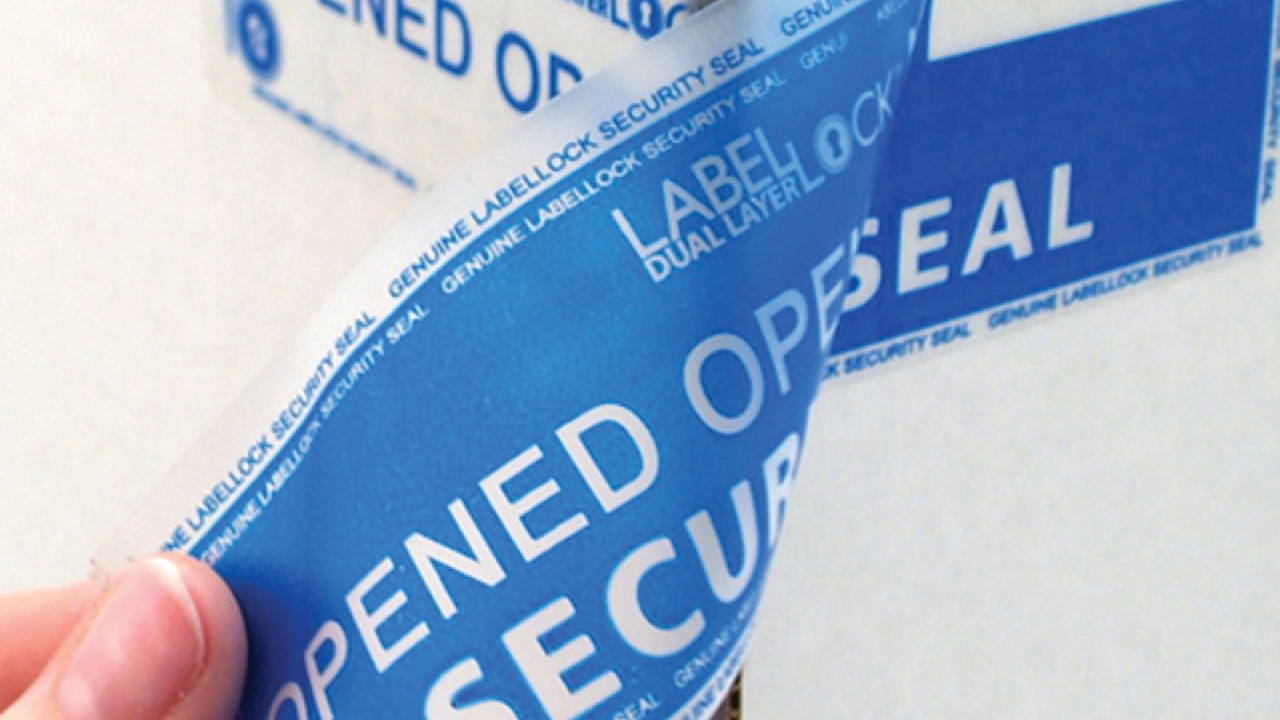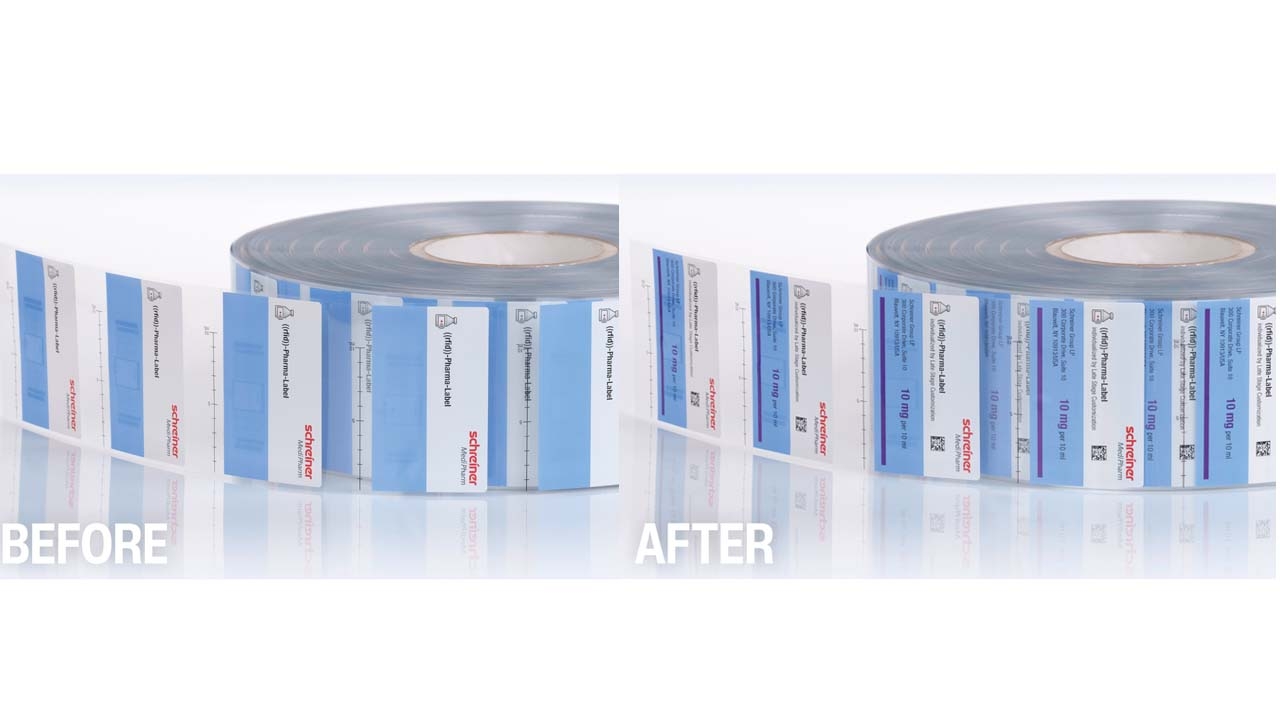Smart response

Can a medium-size label converter specialized in short runs become a Smart label powerhouse? Mercian Labels managing director Adrian Steele believes it can, Andy Thomas reports
With price pressure weighing particularly heavily on UK label converters, it is refreshing to find companies re-thinking their business models with innovation and added value at the cutting edge.
One such company is the Mercian Labels Group, which has been converting PS labels for over 40 years and today is a highly profitable business with a turnover of £2.5m.
‘At the height of the recession in 2009, Mercian’s business was only down two percent on 2008 levels, as we upped our game to find new, more profitable business niches to compensate for customers reducing inventory and a severe downturn in the automotive labels business,’ recalls managing director Dr Adrian Steele. ‘We actually ended up making more money in 2009 than the year before, and 2010 was the company’s sixth successive year of record profit growth.’
The group now operates in four distinct niche areas of labeling; short run, variable data, tamper evidence and Smart indicator labeling.
The core short run business specializes in printing short-to-medium runs of PS labels for its 9,000 UK-based customers using digital, flexo and hotfoil processes. In 2010 Mercian acquired AC Labels Derby, adding long run variable data and barcode label capabilities to its product portfolio and providing jobs for another nine people, bringing the total workforce to 32. Over the last five years the group has carried out a £1m investment program to hone its offering of short run labels and develop an entirely new business in bespoke security label solutions under its Security Labels International arm, which manufacturers the premium Label Lock brand of security labels. That investment program was funded entirely from retained profit. Most recently the group has set up a Smart labeling division to handle its specialist coatings area.
Short run
Mercian Labels’ machine shop includes an Edale Alpha flexo press, Xeikon 330 digital press and hot foil systems. ‘The digital press has certainly taken away many barriers to very short runs, but digital is not the “be all and end all” and it won’t ever replace flexo as a production technique,’ says Steele. ‘With flexo you can make some more regular offerings more cost effective, and there are no limitations with substrates.’
Steele sees the real challenge of digital printing as one of process control. ‘Part of our competitive advantage are the processes we have developed to handle large numbers of tiny runs, different sorts, roll sizes and variants from quotation to artwork, production, delivery and through to accounting in one efficient process. We have a strategy of not restricting customers to particular materials, sizes or design templates that is a common solution to solving production inefficiencies. We prefer to deliver exactly what the customer requires and optimize our processes around the market need using common 'lean' techniques. This helps us retain customers, even though their spend is tiny by most converters’ standards.’
Mercian was handling hundreds of unique short run jobs even before delivery of its digital press, so the culture was already ingrained. Around 96 percent of jobs go out the door 'on time in full', with a default three working day lead time. ‘Every job's lead time from artwork approval to dispatch is automatically measured to the second and reported on the real-time balanced scorecard dashboard as a major KPI,’ says Adrian Steele. This has involved the development of an in-house MIS system which handles everything from inventory management to job planning and order fulfillment. Customers can log securely onto the system to see the real-time status of their jobs or for artwork submission and approval.
Mercian employs a full time software engineer who can react instantly to changes suggested by company employees. Updates are added every week in a process of continual development. The system took 18 months to build and now handles upwards of 1,500 quotes a month, adding around 60-100 new customers a month to the database of over 9,000 active customers. The average order size of £180 ($205) demands that the process is very efficient.
‘There is a high attrition rate for SMEs and particularly for companies with less than ten employees,' says Steele. 'We offer a consultative sell process, as most of our new customers are “label virgins”, and we get all sorts of screen grabs and so on as artwork. We do not do on-line pricing, because we don’t believe it’s in the best interests of the customer. They want solutions – for us to take problems off their hands, and with so many opportunities to add value for the customer by specifying the correct design, finish, material specification and so on it is a wasted opportunity to try and commoditize labeling by offering “take it or leave it” online pricing.’
Given all the recent interest in web-to-print systems, it is interesting to note that the majority of Mercian’s business comes direct through the internet. There is no field sales force. ‘We were among the first label converters to use the internet as our principal route to market as far back as 2000, and we’ve had a website since 1998,’ says Dr Steele. 'It’s a core competency of the business now.’
Get Smart
Five years ago Dr Adrian Steele and his management team – sales director Hugo Gell and now non-executive chairman Dennis Marrison – considered how to move the business away from a reliance on short run, increasingly commoditized label work.
Recalls Steele: ‘Back in 2005 we realized that the market for short run labeling we were operating in was constrained by the UK’s borders, with little possibility of extending this business to Europe. It was obvious that there would be a lot more digital installations to come in the UK, and that market would end up being commoditized swiftly too, as it has in sheet fed digital. We began to see the future as a pioneer of Smart indicator and Smart active label products, developing our own brands of products as well as continuing to 'develop bespoke labels for customers to unique specifications.’
Initially a significant investment – around the company’s entire balance sheet value – was sunk into a purpose-built coating and laminating line designed specifically for the development of Smart label products. The line allows switching between water-based, solvent and UV chemistries and multiple web treatments and complex web handling.
‘This needs a totally different skillset and culture to our short run labeling operation,’ says Dr Steele. ‘It takes time to get new developments right, but we have turned around the old idea that a company of our size and skills cannot ‘do’ innovative Smart label research. You need to commit months of press time to product development and employ scientists and marketeers to identify markets and technical solutions to special needs. These investments take a lot of time and money, but our philosophy is that of continual investment in the business. This is not just it purchasing “shiny kit” but the know-how to take advantage of the technological infrastructure we now have built up in our so-called 'Label Lab'.’
The company’s first ‘Smart’ product was Label Lock, launched in 2008 after two years’ R&D. These tamper evident seals, which have been launched in both low residue and 'dual layer' total transfer variants, are used to secure vehicles, documents, computers and packaging. The third generation of Label Lock product is tamper evident tape, which has generated a lot of interest from distributors. ‘It has been a difficult product to perfect, with so many different chemistry and converting issues to tackle, but the global market is huge and we will take a large share of that in the coming years,’ says Steele.
Label Lock has been used in a wide range of security and brand protection applications including medical devices and paint products. A high coat weight on the low residue version means it works particularly well on difficult surfaces such as brickwork and street furniture. ‘We have flown the product on a Lear jet to Scotland and applied it under water on glass to demonstrate the point! ‘laughs Dr Steele. ‘We can also print variable identification sub-surface numbers in register, making the product very hard to counterfeit. ‘
Indeed, research into new security combination has to be on-going. ‘In many ways this is a black art,’ says Steele. ‘We are always fighting against criminals who are trying to defeat our security products.’
Mercian acquired additional Smart label expertise when it bought AC Labels, which produced labels for the verification of gamma radiation sterilization. These labels were previously produced for the trade and sold under the Detex brand name, but following the collapse of Sessions of York, the biggest user at the time, the decision was taken to sell direct to global users under the Gammatex banner.
'This is only just the beginning for our strategy of developing a portfolio of products and skillset in Smart Indicator labeling,’ concludes Adrian Steele. ‘We already have a pipeline of new ideas in development and are actively looking for new projects to address. The range of areas we are currently researching includes nanotechnology coatings, tamper evident products using printed electronics, high performance UV A+B blockers, gas sensitive coatings, food safety coatings and high coat weight flexography. It is pleasing that others have indicated that they wish to join us in setting up a new LinkedIn group for Smart indicator labels and we would encourage other interested parties to join that group to engage with us and others. We are also developing collaborative research relationships with academia and commercial partners to broaden our portfolio of Smart labeling coatings. The Mercian Labels Group's future is Smart.'
Short Run Association
Dr Adrian Steele is a founder member and administrator of the British Short Run Label Association, a UK-only grouping of label converters with some 40-50 members. The BSRLA only accepts converters as members, and not suppliers or end users. ‘It is a peer-to-peer organization based on an email newsgroup that exchanges information on new technology developments and industry news, for example, or even which customers are not paying their bills and identify what opportunities where we can source work from each other.’
This article was published in L&L issue 3 2011
Pictured: Mercian Group's Label Lock brand of security labels
Stay up to date
Subscribe to the free Label News newsletter and receive the latest content every week. We'll never share your email address.


